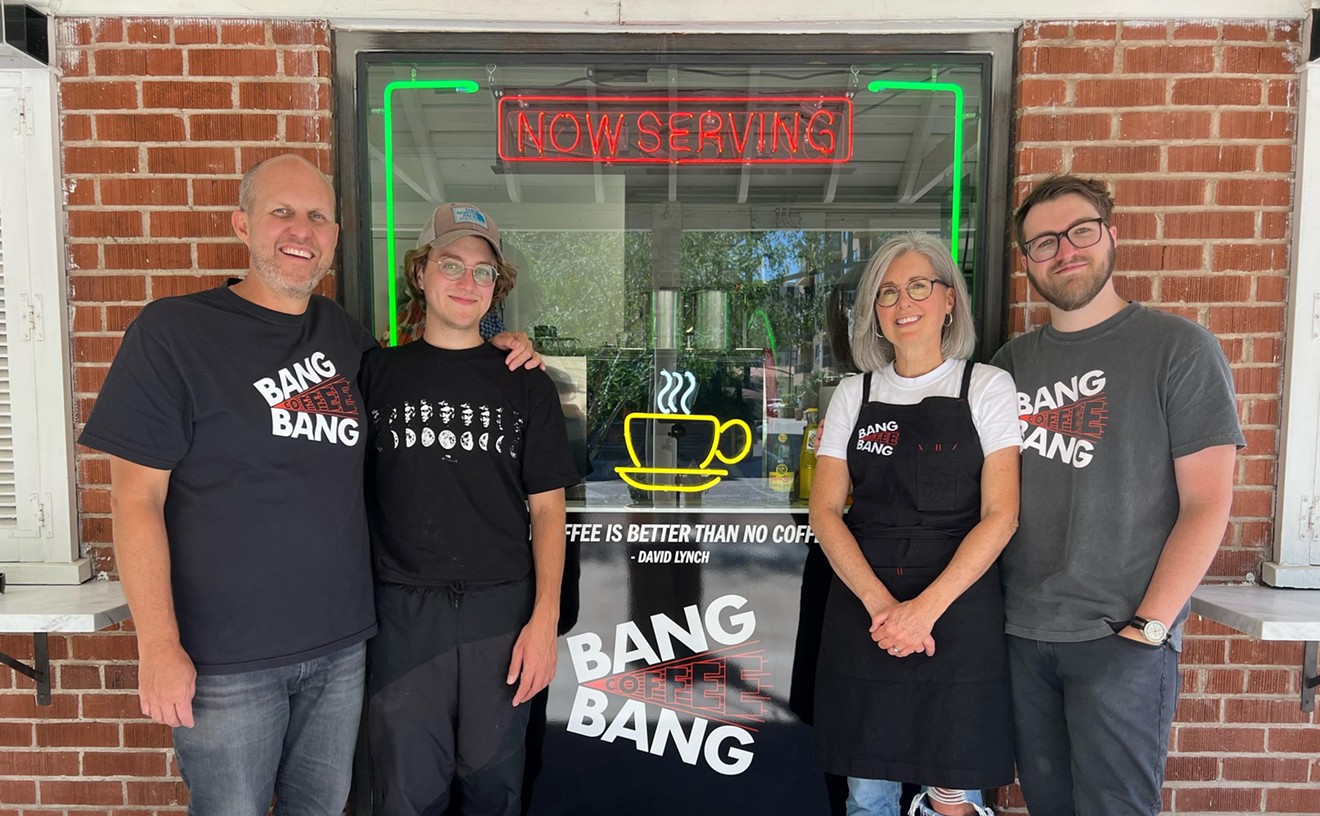The material proceeds from the notion that if every man is an island, that's doubly true for Brits. Jude Law plays über-bobo Will Frances, an elite landscape architect with immaculate taste and flawless self-involvement. He is married to Liv (Robin Wright Penn), an inscrutable Swede clenched in depression. Bea (Poppy Rogers), her daughter from a previous marriage, is a basket case of neurosis and cognitive disorders. Divided and conquered by the screenplay's schematic, each retreats into a solipsistic bubble. Will's a workaholic, Liv glares meaninglessly into space, Bea goes ballistic over pretty much everything.
Will escapes to his fabulously chic warehouse studio in the King's Cross district of London, a working-class neighborhood in the midst of gentrification — or at least what passes for it in this guilt-ridden fantasy of class conflict and mutual appreciation. Vera Farmiga makes an appearance as a local hooker who name-drops Kafka, but the larger problem for property values is a pack of teenage Bosnian thieves that somersaults on the rooftops looking for MacBooks to boost. The contents of Will's office are several times relieved by Miro (Rafi Gavron), a rough-trade angel better suited for a Raf Simons catwalk than breaking and entering (or Breaking and Entering) shenanigans.
One night on stakeout, Will catches Miro in the act and tracks him to the home of Amira, a Bosnian refugee who ekes out a living as a seamstress despite her astonishing acting chops and uncanny resemblance to Juliette Binoche. As the poorest and most foreign of the film's personages, as well as the most miserably coifed, she is naturally the most noble. Torn blazer in hand, our hero comes calling in search of incriminating evidence but instead commits a crime of the heart. Islands are breached, bubbles burst. There will be breaking — oh, yes — and entering, too. But is Will willing to forgive and forget? Is Amira whoring herself to protect her boy? Will Liv return to the Bergman film she came from? Can Bea please stop flipping out about the chicken dinner? All this and more is revealed as Breaking and Entering heads to a delusional finale, resolving its messy scenario in an act of preposterous altruism.
The problem with Breaking and Entering isn't fundamentally ideological. This isn't the first rich man's fantasy of the working class, nor the most egregious, though it's certainly among the more overwrought. The talented cinematographer Benoît Delhomme (Cyclo; The Proposition) is given free reign to go quietly berserk, framing the simplest domestic scenes with a confounding density of effect. Focal range fluctuates on the whim of some mystifying lyrical impulse. The Frances family home is full of chic glass partitions, few of which clutter up the mise en scène. Dizzy form follows daffy function, with these visual pretensions matching tit for tat with Minghella's overstuffed screenplay. Left to his own devices, he falls back on bad habits learned in his early career as a playwright: contrivance, complacency, and a monstrous indulgence of implausible talk. "I love your laugh," Will coos. "I'd love to gather up your laughs and lock them in a box like bees, and nobody would be allowed the key." Yeah, man, lock that shit up for real.










